Scientists reveal that human beings are 100% responsible for climate change. Man is to blame for the critical state of the earth. Therefore, if we do not act soon, there will be no life, a few decades to come. The only road out of this danger is embracing a significant change in our way of life.
Technological inventions such as solar panels have been made to curb the worldwide threat, undeniably a good move. However, the mitigation strategies in place focus more on industries, fossil fuel energy, and construction of buildings, forgetting the dietary lifestyle of a majority. Your type of diet heavily affects the environment and climate. Let’s see the substantial significance of going vegan to combat climate change.
Why fight climate change with a vegetarian diet?
#1. Save the forests from depletion
Every year we wake up to 15 billion trees cut down around the globe. For instance, already three-quarters of the Amazon tropical forest no longer exists because of the large-scale cattle ranching and pasture cultivation to sustain the global greed for meat.
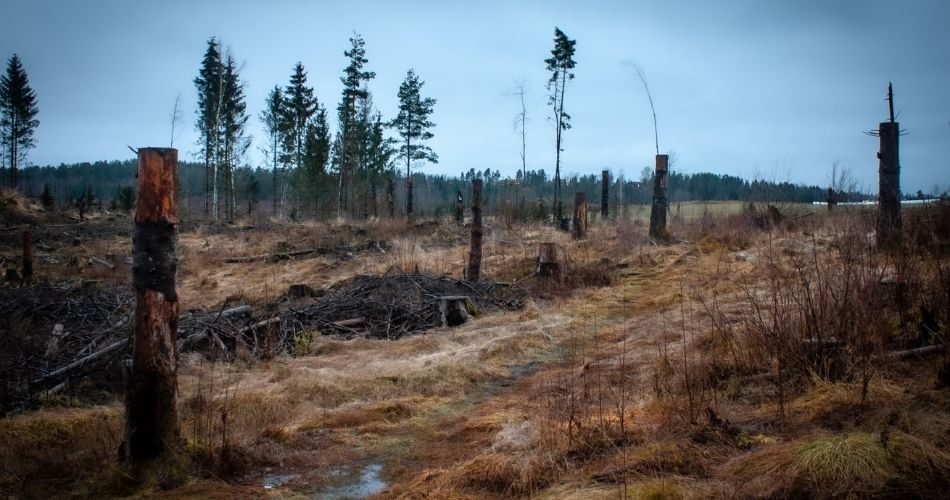
It is estimated that pasture land will expand to 400 million hectares from 2010 to 2050, an area of land bigger than the size of India, to meet the growing demand for beef. That means deforestation would be extensive, yet forests absorb large amounts of carbon dioxide from the atmosphere.
#2. Reduce the enormous emission of “Greenhouse Gases”
Farm animals release six billion tonnes of greenhouse gases, more than all cars and vans combined. The Food and Agriculture Organization of the United Nations adds that livestock agriculture contributes to 14.5% of the global human-induced GHG emissions, outlining further that methane makes up 44% of the livestock emissions, while nitrous oxide and carbon dioxide take up 29% and 27% respectively.
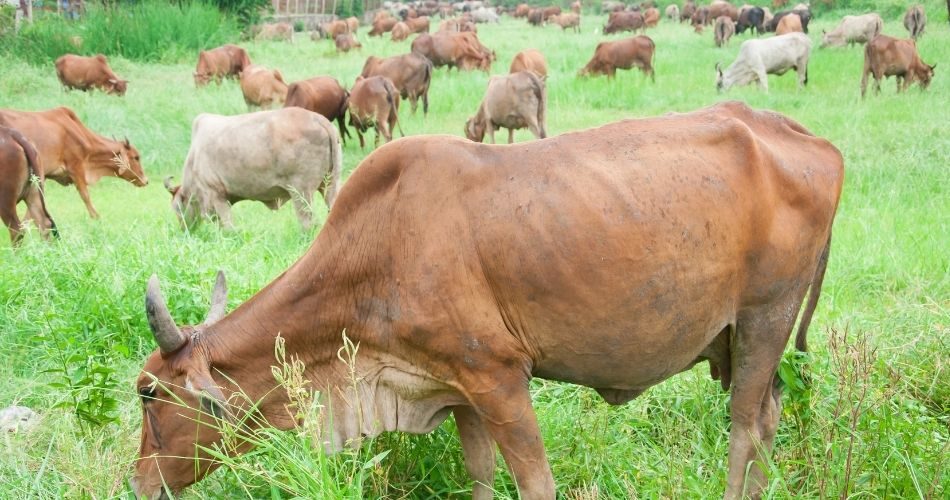
As ruminant animals like cows and goats chew the cud, they release methane in the form of burps, termed the enteric fermentation process. Similarly, the tons of animal waste excretions emit nitrous oxide into the atmosphere, 300 times more potent than carbon dioxide in trapping heat.
#3. Protect the natural waters from pollution
Poor animal waste management accelerates water contamination and raises the risk of water-borne diseases. The untreated faeces and wastes from the animal feed pollute the surface water from rainfall or storms and the groundwaters. That contaminated surface water flows as runoff to the streams and rivers, containing pathogenic matter, antibiotics, hormones, and toxic chemicals that generate greenhouse gases.
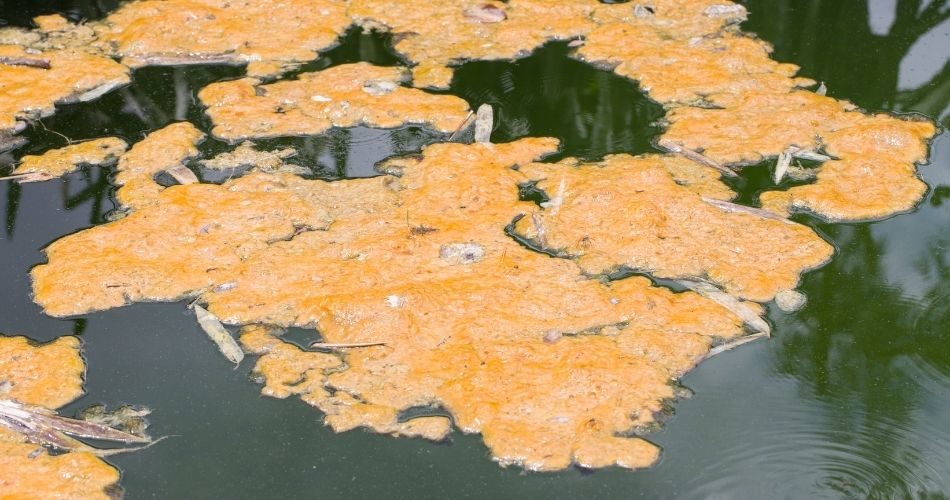
#4. Prevent global water shortages
One kilo of lentils consumes 13 gallons of water to flourish, this figure is 138 times higher in beef production. According to the Pacific Institute and National Geographic data,’ a single egg takes 53 gallons of water to produce, a pound of chicken 468 gallons and a pound of beef 1800 gallons. Additionally, cows drink 3 to 30 gallons a day, compared to half a gallon of water a person can take up in one day. In the US, for example, animal production is the leading consumer of water resources.
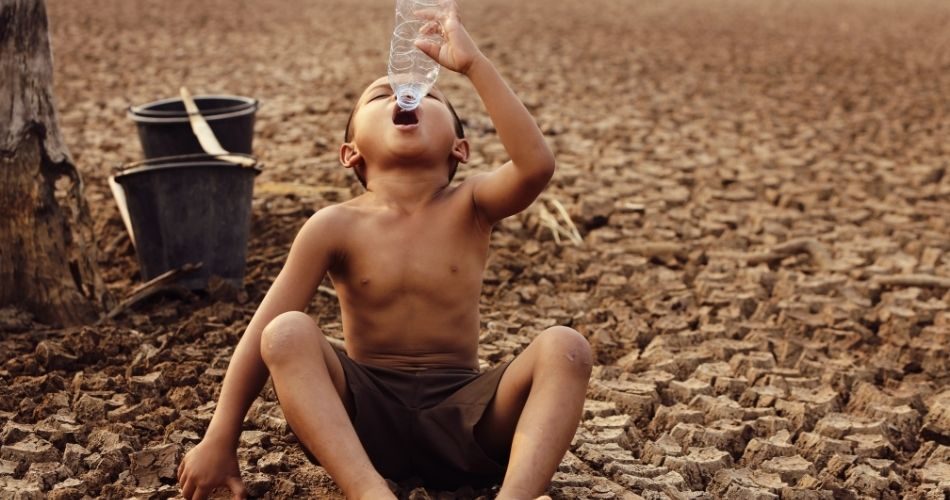
#5. Moderate the use of pesticides in animal farms
Around 30% of the global emissions are due to agriculture, including pesticides, as stipulated in a special report by the Intergovernmental Panel on Climate Change. Global beef production incorporates nearly a third of the agricultural pesticide use. These pesticides pose a significant threat to the health of the farm factory workers, the waterways, and wildlife. Approximately 200,000 people die from adverse health effects of pesticides.
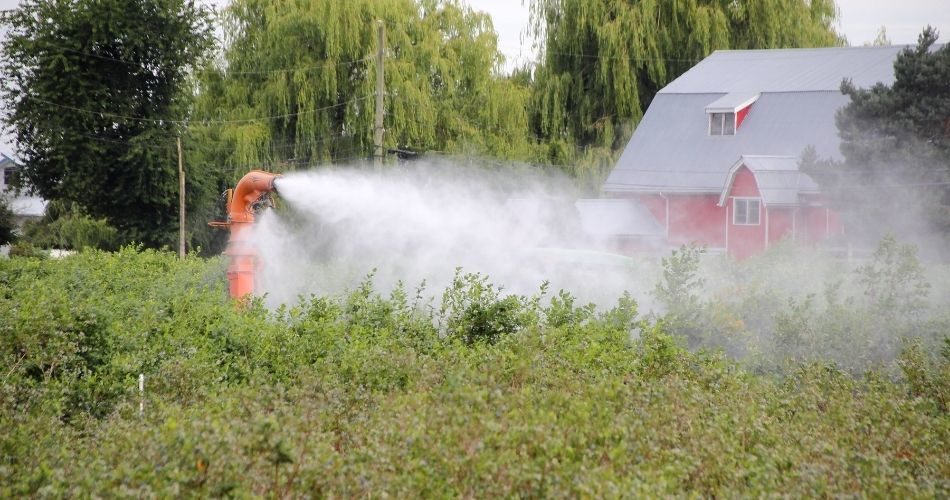
#6. Lessen the excessive Carbon production
Take it this way: The world population currently stands at around 7.7 billion people. What if each person owns roughly four livestock? If you do the maths, there’s a 100% chance the global livestock population far exceeds the human population.
The herds of livestock exhale carbon dioxide into the atmosphere as a respiratory waste. And just like methane and nitrous oxide, global warming would result from excessive carbon dioxide emissions from animals.
#7. Prevent the extreme loss of biodiversity
The Appetite for Destruction report shows that the more livestock products we consume, the more animal feed we need to manufacture. Yet growing pasture for feed eats up more land under forests, destroying natural habitats and species extinction. The mass clearance of forests is exhausting the earth’s biodiversity and the natural ecosystems.
#8. Cut down the food wastes
It’s estimated that 23% of the food waste comes from the livestock production industry. Food waste is food intended for human consumption but is discarded due to poor food preservation and management strategies. Most animal products are wasted at the consumer level, ending up in landfills, releasing methane and carbon, and intensifying climate change.
#9. Stop any further soil damages
While animal manure can improve the soil humus composition and its fertility, animal farms face overgrazing and the exposure of the top fertile soil to erosion and soil degradation. Soil is a vital component of the earth as it stores three times more carbon than the plants and the atmosphere, thereby mitigating a large fraction of the greenhouse gases.
#10. Reduce livestock production
More than three-quarters of the earth’s agricultural land is devoted to either livestock grazing or growing animal feed. This is inefficient land use as animal proteins account for less than 18% human protein and 36% calorie consumption every year. What’s more, 40% of the world’s grain is fed to livestock instead of supplementing the world’s plant protein food supply.
“If all the grain currently fed to livestock in the United States were consumed directly by people, the number of people who could be fed would be nearly 800 million.”
David Pimentel, Professor of Ecology, Cornell University
Moreover, if we embrace plant-based diets, then the number of livestock would reduce significantly.
The Bottom Line
A research study by the University of Oxford explains that a global diet switch to eating more fruits and vegetables could save around 8 million lives by 2050, mitigate greenhouse emissions by two-thirds, and alleviate climate-related damages. By eating meat, we choose to support climate change, water and air pollution, deforestation, and food waste, at the expense of the health of our planet.
“We do not expect everybody to become vegan. But the climate change impacts on the food system will require more than just technological changes. Adopting healthier and more environmentally sustainable diets can be a large stop in the right direction.“
Dr. Marco Springmann, Senior Researcher (Nuffield Department), University Of Oxford

